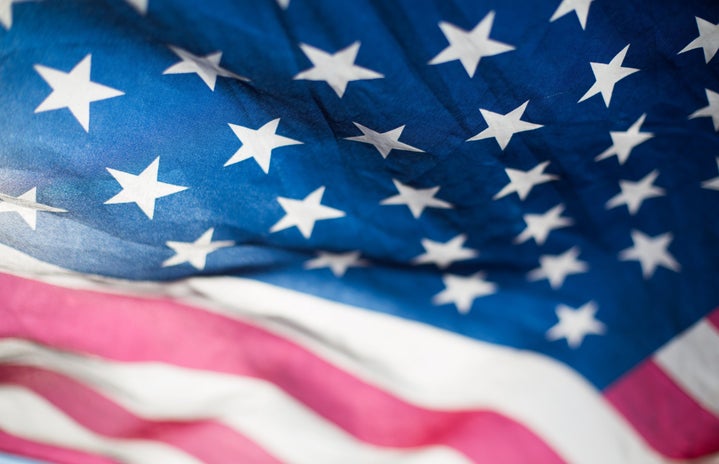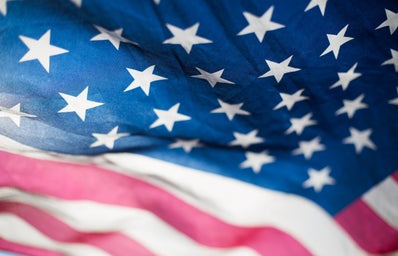Black History Month, also called African-American History Month, is a celebration of the achievements of African-Americans and their key role in the United States. It is a month to recognize African-Americans as more than just a group of people mentioned in our history class textbooks. By recognizing their unique individual stories, we can truly appreciate African-American history.
We are familiar with many of the key figures in African-American history, and here I will talk about some lesser-known Muslim African-Americans who have made great contributions to American history.
- Omar ibn Said
-
A dark history followed for Africans during the slave trade. It was found that thirty to sixty percent of the slaves were Muslims from Africa, one of them including Omar ibn Said. Omar ibn Said was an educated Muslim-African born about 1770 in Futa Toro (modern Senegal), captured at age 37 and brought to South Carolina to be sold. He remained enslaved until his death in 1864. He was transported to Charleston, North Carolina and then escaped to North Carolina. When ibn Said escaped to Fayetteville, North Carolina, he was imprisoned after entering a Christian church to pray. Said garnered attention by writing on the walls of his prison cell in Arabic, and he soon became the legal property of General James Owen of Bladen County, who recognized Said to be an educated man and, according to Said’s autobiography, treated him well. Said still understood the ills of slavery. His autobiography opens with a passage from the Quran, Surah 67, entitled Sūrat al-Mulk, which means “sovereignty.”
The chapter focuses on God’s control over all things and humanity’s attempts to control the world. The passage itself challenges the idea of ownership over another human being, a right that only exists within God, He maintained his Islamic faith all throughout his life.
When Omar died in 1864, at over ninety years of age, he was still enslaved to the Owens family. He is buried in Bladen County, North Carolina. In 1991, an American mosque was named after Omar ibn Said, and in 2010, the state erected a historical marker honoring him. During Black History Month, stories like Omar ibn Said remind us that Muslims were not strangers to early America, and have, in fact, been an important part of our collective history.
- Muhammad Ali
-
Muhammad Ali was a boxer, philanthropist and social activist who is universally regarded as one of the greatest athletes of the 20th century. Ali became an Olympic gold medalist in 1960 and the world heavyweight boxing champion in 1964. Although many focus on his achievements as a boxer, he was a remarkable man for his wisdom and deep faith. His pure and non-discriminatory understanding of Islam made him loved by all.
He loved America even though he was forced to attend segregated schools. He loved America even after the government and many of its citizens turned on him for becoming a Muslim. He loved America even after he was convicted of draft dodging and banned from boxing for three and a half years. Ali loved America because he was a fighter, and America let him fight for his unpopular — and what some thought were unpatriotic — beliefs. He loved America because it’s a nation that gives fallen fighters repeated chances to get up off the mat.
- Ibtihaj Muhammad
-
The story of Ibtihaj Muhammad came to me when I was considering sports. Could Muslim women even play sports? Yes, yes they can.
Ibtihaj Muhammad is an Olympic medalist in fencing. A 2016 Olympic bronze medalist, 5-time Senior World medalist, and World Champion, in 2016, Ibtihaj became the first Muslim American woman to compete in the Olympics in hijab. Her memoir, Proud: My Fight for an Unlikely American Dream, chronicled her journey from a teenager deciding to fence in high school after seeing a sport that didn’t require a uniform modification to properly cover herself, all the way to intense training she underwent for the Olympic scene.
In addition to changing the athletic arena, in 2014, Ibtihaj launched her own clothing company, Louella, which aims to bring modest, fashionable and affordable clothing to the United States market. In 2017, Mattel announced their first hijabi Barbie, modeled in Ibtihaj’s likeness, as part of Barbie’s “Shero” line of dolls. It is so important every little girl gets to see themselves represented in toys like the famous Barbie doll. It sends a message — you are seen, you are special, and you are loved.


